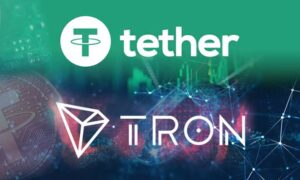
Introduction
As the digital landscape evolves, so do the mechanisms for protecting financial privacy. Privacy coins, a type of cryptocurrency designed to offer enhanced anonymity, have become a focal point of both innovation and debate. This blog explores the benefits and controversies surrounding privacy coins like Monero, Zcash, and Dash.
What Are Privacy Coins?
Privacy coins are cryptocurrencies that prioritize confidentiality. Unlike Bitcoin or Ethereum, where transactions are public and traceable, privacy coins use advanced cryptographic techniques to obscure transaction details, including the sender, receiver, and amount. This obfuscation aims to provide users with the freedom to transact without exposing their financial activities to scrutiny.
Benefits of Privacy Coins
1. Enhanced Financial Privacy
The primary appeal of privacy coins is their ability to safeguard user privacy. By concealing transaction details, they protect individuals and businesses from potential surveillance and data breaches. This is particularly valuable in a world where data privacy concerns are escalating.
2. Security from Theft and Fraud
Anonymity in transactions reduces the risk of targeted attacks. Hackers and fraudsters often rely on transaction data to exploit vulnerabilities. Privacy coins help mitigate this risk by making it harder to trace and exploit financial flows.
3. Protection in Hostile Environments
In regions where economic or political instability is prevalent, privacy coins offer a means to conduct transactions safely. They enable users to shield their financial activities from oppressive regimes or adversarial actors, thus ensuring a measure of economic freedom.
4. Enhanced Fungibility
Fungibility is the property that makes one unit of currency interchangeable with another. Privacy coins enhance fungibility by ensuring that all coins are indistinguishable from one another, thereby avoiding issues where coins might be “tainted” by previous transactions.
Controversies Surrounding Privacy Coin
1. Association with Illegal Activities
Privacy coins have faced criticism for their association with illicit activities, such as money laundering, drug trafficking, and ransomware attacks. Their ability to obscure transaction details can be exploited by criminals to conceal their tracks. This has led to increased scrutiny and regulatory pressure.
2. Regulatory Challenges
Governments and regulatory bodies are grappling with how to oversee privacy coins without stifling innovation. The challenge lies in balancing the right to privacy with the need to prevent illegal activities. Regulatory measures, such as the Financial Action Task Force (FATF) guidelines, often require cryptocurrency exchanges to implement strict Know Your Customer (KYC) and Anti-Money Laundering (AML) procedures, which can be at odds with the privacy features of these coins.
3. Technological Complexity
The sophisticated cryptographic techniques used by privacy coins, such as ring signatures, zk-SNARKs (zero-knowledge succinct non-interactive arguments of knowledge), and CoinJoin, add layers of complexity. This complexity can lead to increased risks of bugs or vulnerabilities, potentially undermining the privacy and security they aim to provide.
4. Market and Exchange Limitations
Due to regulatory concerns, many cryptocurrency exchanges are reluctant to list privacy coins. This limits their accessibility and liquidity compared to more transparent cryptocurrencies like Bitcoin or Ethereum. For users, this can mean fewer options for trading and using their privacy-focused assets.
The Future of Privacy Coins
The future of privacy coins remains uncertain but intriguing. As digital privacy becomes a more pressing issue, the demand for privacy-enhancing technologies, including privacy coins, is likely to grow. Innovations in cryptographic techniques and blockchain technology may further enhance their security and usability.
Simultaneously, ongoing dialogue between privacy advocates, regulators, and the broader cryptocurrency community will shape the regulatory landscape. Achieving a balance that respects user privacy while addressing legitimate legal concerns will be crucial for the sustainable development of privacy coins.
Conclusion
Privacy coins offer a compelling solution to the growing need for financial privacy in the digital age. They empower individuals with greater control over their financial information, but they also pose significant challenges in terms of regulation and security. As technology and policies evolve, privacy coins will continue to be a dynamic and controversial aspect of the cryptocurrency ecosystem.
Further Reading
– [How Privacy Coins Work: A Technical Overview](#)
– [The Regulatory Landscape for Privacy Coins in 2024](#)
– [Comparing Privacy Coins: Monero vs. Zcash vs. Dash](#)
—
By exploring both the benefits and the controversies, we gain a nuanced understanding of privacy coins and their role in the future of digital finance. What are your thoughts on privacy coins? Join the discussion in the comments below!






